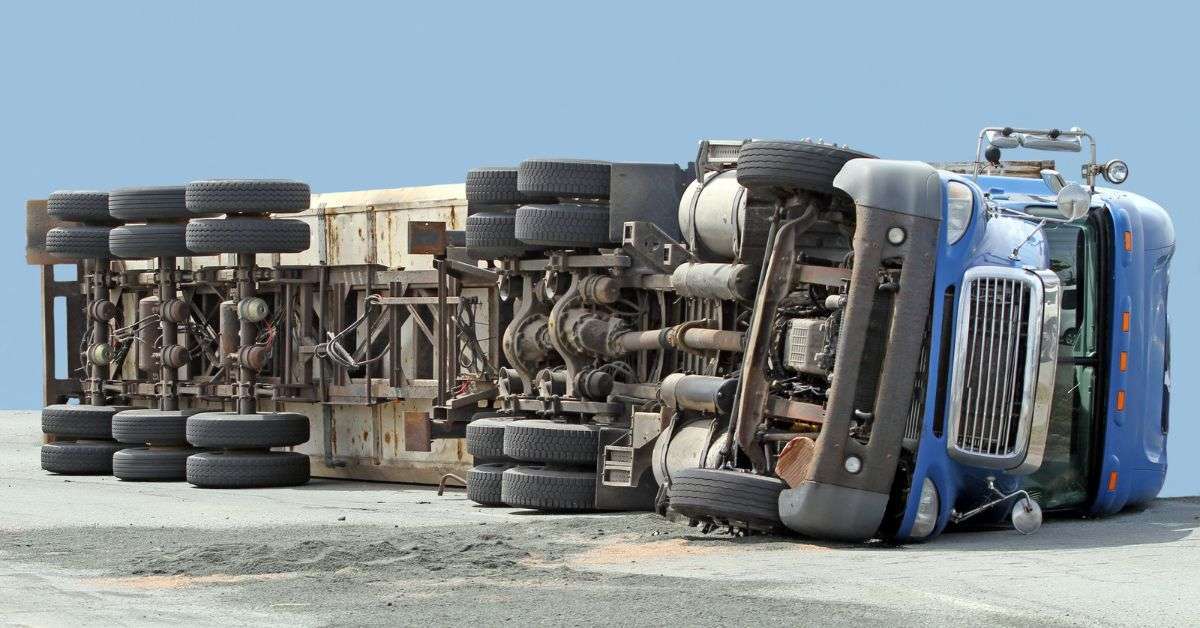
Truck rollover accident constitute some of Oklahoma’s most common and dangerous truck accidents, as extremely heavy vehicles, commercial trucks, and semi-trailers may cause massive damage on the road and devastating or fatal injuries to any involved drivers. Understanding the physics and conditions of truck rollovers can help avoid them.
A truck rollover may result from excessive speeds, driver fatigue, poor weather conditions, and other factors. Learn more about the common causes of truck rollovers and how to reduce the risk of rollovers in Oklahoma.
How Truck Rollover Accident Happen
Large, heavy trucks have a less stable gravity center than lightweight passenger vehicles. Losing this stability may cause the vehicle’s wheels to lift from the road. When this happens, the truck may end up upside down on its side.
A rollover may often occur when a truck passes a corner or follows a curving road too fast, but some rollovers also occur because of extreme weather conditions like high winds. Heavy-loaded trucks traveling at high speeds are in grave danger of rollovers.
Besides the direct outcomes, like injuries to the trucker or a crash involving other vehicles, truck rollovers may cause secondary collisions if the upturned truck blocks the road or distracts drivers. Spilled cargo may lead to additional hazards if the contents are toxic, flammable, or otherwise dangerous.
Common Causes of Truck Rollover Accident
The following factors often lead to truck rollover accident in Oklahoma:
- Excessive speed. According to the Large Truck Crash Causation Study by the Federal Motor Carrier Safety Administration (FMCSA), speed was the most significant contributor to truck accidents, present in 45% of the truck crashes in the study. A rollover often happens when a truck turns too fast, so the cargo can’t keep up with the front wheels.
- Driver error. A trucker may misjudge the speed that would be safe with all the factors combined (truckload, road conditions, turn angle, etc.). Tired or distracted truck drivers are more prone to errors like oversteering, understeering, or not keeping enough distance from other vehicles.
- Improper loading. An overloaded truck loses some stability and becomes more challenging to steer, putting it at a higher risk of a rollover. Likewise, improperly secured cargo may roll inside the truck and cause it to lose stability.
- Other motorists. Not all truck rollover accident happen because of careless truckers, and a reckless motorist may force a trucker to swerve too fast to avoid a collision, leading to a rollover.
- Poor truck maintenance. Trucks often belong to a freight company responsible for maintenance and loading. A trucker may realize too late that there’s a problem with the tires, brakes, or truck safety systems.
Tips for Preventing Truck Rollover Accident
If you’re a trucker in Oklahoma, the following tips can help you prevent rollovers:
- Travel at a safe speed, which may be below the legal speed limit. Slow down at curves and corners.
- Stay alert. Never drive when tired, unwell, or on a medication that may cause drowsiness.
- Check your truck for mechanical and safety issues before every major trip.
- Avoid overloading, and make sure to secure loads properly.
Bryan Garrett, PLLC: Car and Truck Accident Attorney in Oklahoma City
Even the most careful and responsible drivers may be involved in truck rollover accident or other accidents. If you suffered a motor vehicle accident in Oklahoma City, contact attorneys at Bryan Garrett, PLLC. Our skilled legal team will evaluate your case, help protect your rights, and support you throughout your car accident claim.Call (405) 725-2661 or contact us online for a free consultation with a truck accident lawyer in OKC.


